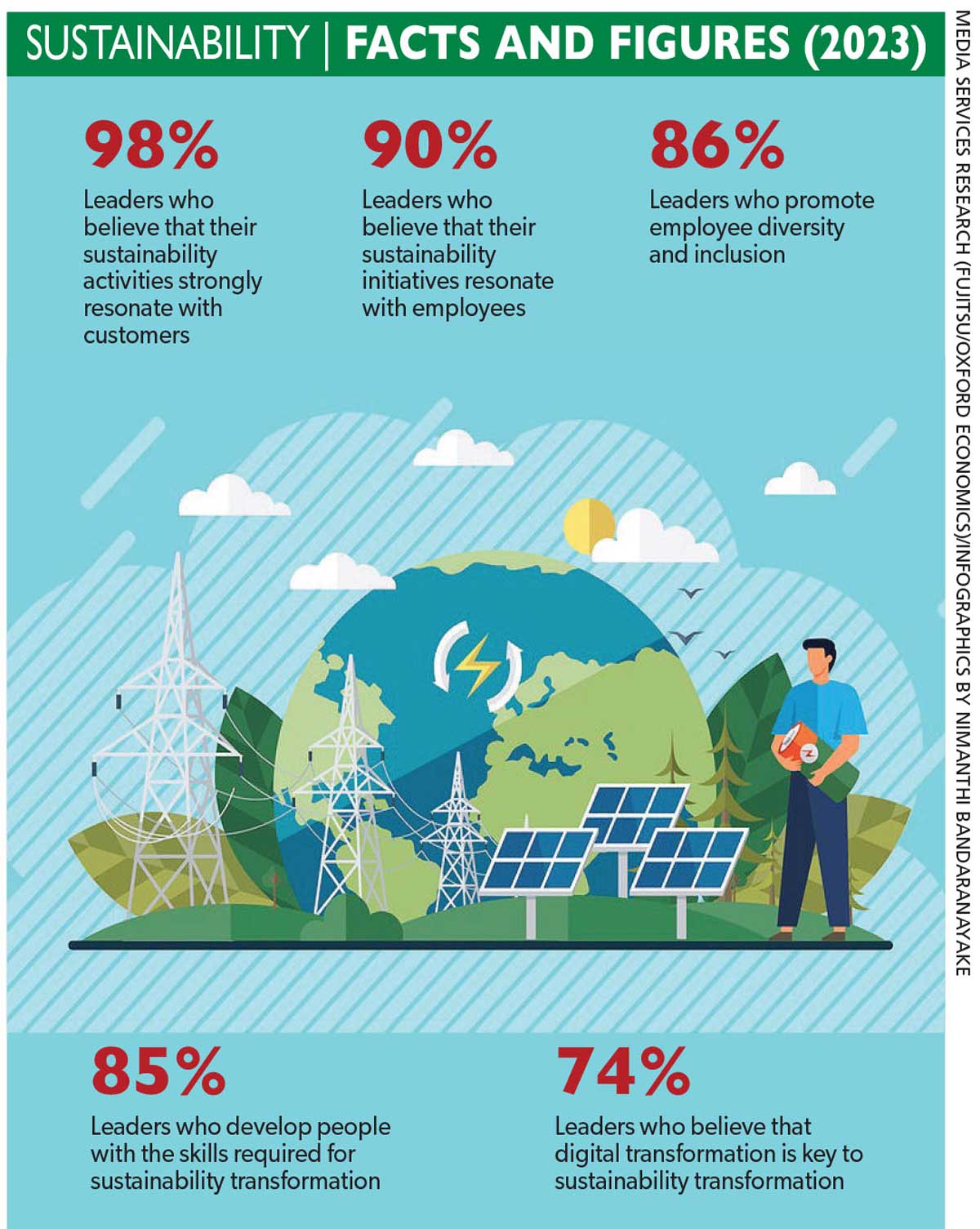CORPORATE SUSTAINABILITY
SECRET SAUCE
Workers play a valuable role in business – Kiran Dhanapala
Many articles have been written about corporate purpose and its role in strengthening organisations, in terms of governance, sustainability and profitable growth. There’s both individual and organisational purpose; and there needs to be an optimal confluence of the two for any benefit to accrue to a business.
This alignment of purpose has been the subject of many publications and research studies.
Involving employees in sustainability initiatives builds a culture of ownership and responsibility. They feel invested in the initiatives and develop a sense of pride in the business’ sustainability goals.
This makes them more willing to align with corporate sustainability goals and be innovative in their contributions to these objectives.
To encourage employee engagement, effective communication about the business’ sustainability goals is important because it helps them to set out their priorities.
For purpose to be meaningful, it needs to be absorbed and integrated throughout the organisation. Senior management needs to lead by example in terms of sustainability practices and the creation of a new corporate culture.
Organisations should also provide training and resources for employees on specific topics such as waste reduction, and provide them with reusable water bottles and so on.
Management must recognise and reward the sustainable behaviour of employees.
A non-monetary incentive is often underrated but very incentivising. It’s also necessary to make sustainability a team sport and encourage collaboration rather than competition. And it’s vital to empower people at all levels of the organisation to contribute to sustainability.
There are three types of employees in corporate sustainability management.
The ‘Implementer’ has knowledge of the business’ detailed operations and products, and this information can be used to implement changes such as sources of energy efficiency throughout operations.
Then there is the ‘Ambassador’ who interacts with external stakeholders including customers and suppliers. Ambassadors can influence stakeholders regarding their perceptions of the enterprise.
The third type of employee is the ‘Recipient’ who enjoys the benefits of improved working conditions as a result of internal corporate sustainability measures.
Often, employees aren’t taken into account when designing corporate sustainability initiatives. This is especially so for innovation and transformative practices, which are seen as the preserve of experts. However, employees often emerge as innovators if corporate sustainability is facilitated properly and the organisation can gain from this process.
And there are several factors that influence employee contribution.
Corporate purpose and sustainability are ethical issues that influence employee behaviour. Sustainability ownership (SO) is a state where employees feel they own a piece of sustainability.
Purpose has been found to influence SO. It gives meaning to work, and purpose represents what the business stands for and allows employees to bring meaning to their work. It has also been found to be a key driver of employee sustainability behaviour (ESB).
A recent academic paper in the Journal of Business Ethics highlighted research into how purpose enables a company to be more sustainable by increasing employee sustainability behaviour.
The ethical aspects of purpose enable staff to assume more ownership of corporate sustainability initiatives, and this is strengthened through greater flexibility and independence when they participate in such initiatives.
This ability for employees to see where they are best able to act in accordance with their own purpose is optimal to engaging in ESB. Research shows that employees can also take ownership of business and societal issues, and authentic corporate purpose can help businesses become more sustainable.
Therefore, businesses need to craft their purpose through a consultative process and link it to their sustainability vision with enough flexibility to build employee ownership among its initiatives. Targets can be set to allow achievement mechanisms for individual business units and/or geographies.
For employees who don’t value sustainability, the organisation will need to advocate constantly on the benefits of protecting the planet and so on through signs, dashboards and ambassadors, in order to change mindsets and behaviour.
Workplace experiences demonstrate that sustainability projects often assist in changing mindsets very effectively. There’s always a need for an entity to have a fun sustainability project (a crowd pleaser) that enables employees to meet across organisational and functional silos, creates enthusiasm, and builds a sense of achievement and impact for them as a group.
Incentives including fun and meaningful gatherings or events are vital but they need to be monitored carefully to track key metrics including staff time.





